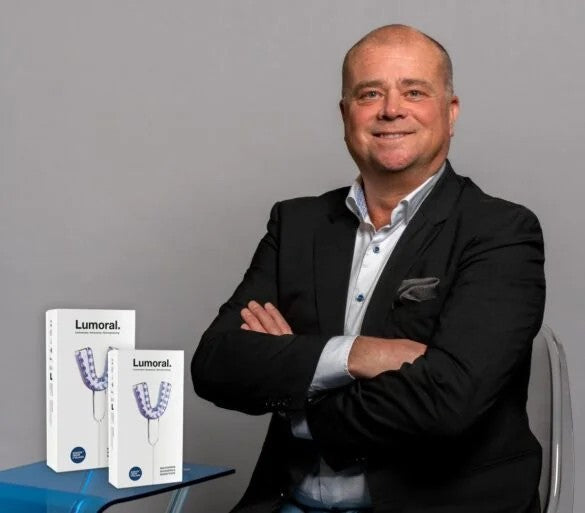- All posts
- 8 Media Venture
- althetics
- aMMP8
- Annimari Korte
- Antibiotic resistance
- Apotek Härtat
- Aqua Dental
- athlete
- Award
- Baltics
- Bonnier
- Bonnier News
- Brain health
- Business
- Cancer
- cardiovascular disease
- caries
- Chemo therapy
- children
- collaboration agreement
- Croatia
- Denmark
- Denta
- Dental erosion
- Dentex
- diabetes
- Dual Light
- Duodecim
- EFP
- EFR
- Estonia
- EuroPerio
- event
- Expodental
- FIBO
- fund raising
- general health
- Gingivitis
- Gum disease
- HAP
- HealthHub Pharma
- HIDES
- Hospital infections
- hospital-acquired pneumonia
- IBD
- Iceland
- IDS COLOGNE
- implantology
- invest
- investment
- italy
- Koite Health
- Latvia
- Lithuania
- lumoral
- Lumoral App
- Lumoral Junior
- Maritime industry
- Media
- MegaGen
- Movie
- News
- Nordic markets
- Nordics
- O
- Olympics
- Oral health
- Oral hygiene
- Oral mucositis
- Patent
- PDT
- peri-implantitis
- Perio Master Clinic
- Periodontitis
- periodontology
- Photodynamic therapy
- Press
- Ranking
- Romania
- Scandinavian Society of Periodontology
- Science
- Seafarer
- Seedtable
- share issue
- Shareissue
- Siblings movie
- Spain
- spots
- Stroke
- Study
- sweden
- Tartar
- techtour
- Thailand
- UK
- United States
- Valentine's Day
- WHO
- World Cancer Day
- World Health Day
- World Heart Day
- world oral health day
- World Smile Day

Koite Health Secures EU MDR Quality Management System Certification for Lumoral Devices
Stockholm, 12 November 2025 Koite Health Oy today announced that it has received the EU Quality Management System Certificate under the European Medical Device Regulation. The certificate covers th...

Koite Health appoints Peter Rådqvist from Sweden as CEO to lead international growth
Koite Health is strengthening its position in Sweden and international markets with a new CEO, expanded pharmacy partnerships, and a new growth strategy. The company's patented Lumoral® innovation,...

TV host Satu Tuomisto on the Nerve Damage That Changed Everything
“If I can get through this, I can get through anything.” Finnish TV presenter and media personality Satu Tuomisto suffered permanent nerve damage during a wisdom tooth extraction - just days befo...

Vienna, Austria – May 2025 Hall B, Booth M01 in EuroPerioAt EuroPerio11, Europe’s leading congress on periodontal science, Finnish health technology company Koite Health is unveiling the finalised ...

Nordic oral health experts join forces to combat gum disease
Periodontitis, a serious form of gum infection, is an insidious inflammatory disease that has been linked to cardiovascular disease, diabetes and other systemic conditions. In Finland, around one i...

World Health Day: Why Oral Health is Key to a Healthy Heart
On World Health Day, it’s time to shine a light on a part of the body that is often overlooked when we talk about overall health: the mouth. While many associate oral hygiene with preventing caviti...